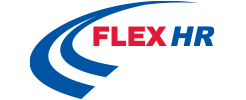Growing Small Businesses Need Professional HR Support
A company’s sign of success is when they start adding more employees to fulfill all aspects of the workload. But when a company starts to expand their staff, the need for more regulated Human Resources Management (HRM) best practices must be followed to ensure compliance, efficiency and success for the organization. And thus, it’s time take action and find some HR solutions before any major damaging mistakes are made.
Flex HR recently received a call from a small family business that grew quickly to over 50 employees across multiple states and locations. They had been operating without dedicated HR support and wanted Flex HR to help them build an employee handbook and put best practices and policies in place.
First things first
Flex HR recommended an HR audit be conducted. The results of this company’s audit proved what they had feared about the multiple policies at the various locations they had loosely in place. It was time to turn these into one cohesive document, creating an Employee Handbook that fit the culture and brand of the company. Stephanie Ledford, the HR Consultant on this account explains that “in addition, by listening to the client, Flex HR was able to amend and add critical policies to curtail some of the employee relations issues that had been popping up, to which both employees and managers needed clarification around. The end result was a document that was robust, effective, and clear for everyone to follow and implement.”
Once an appropriate Handbook was crafted and being followed properly, Flex HR was asked to step in and focus on the employee relations issues. It’s important to think about long-term operational strategies that suit business needs. It was then time for a deep dive to address other HR gaps the company was dealing with such as: employee file audits, job descriptions that are compliant, offer letters, and more. Flex HR continues to work with this client by listening to all their needs, stepping in to assess and communicate gaps, and partner to meet expectations and deliver results that fit the company’s needs, both now and for the future.
5 Tips for Small Business HR Best Practices
- Do a deep dive to figure out needs.
When an organization is partnering to get HR support for the first time, it’s important to observe all the current operations and perform an audit of what the needs are. Is the organization legally compliant with policies and practices? Is there a major HR issue (ex: turnover) that needs to be addressed ASAP? Are there good guard rails regarding compensation, payroll, benefits administration, etc. in place? - Prioritize needs and tackle legal risks first.
If there are any areas that would put a company at risk for not being compliant, those must be tackled first to avoid costly issues. Is the handbook and key policies up-to-date and aligned with federal and state laws? Are there proper records retention and onboarding procedures in place? Do we have job descriptions and offer letters and proper documentation for every employee? Getting policies and practices up-to-date is critical. - Start to implement key HR initiatives.
Based on your deep dive, HR should know what leadership and employees need. Is it a better process for hiring and onboarding key talent? Is it increasing employee engagement? Is it retention and rewards? Prioritizing the big needs and tackling the pain points a company faces and needs HR support for should be done as soon as possible. - Get feedback.
As you begin to roll out and enhance HR processes and key initiatives, continually getting feedback from key stakeholders (leadership, employees, and decision makers) is important. What is working? What can be done better or needs to change to meet the employee and business needs? HR can always pivot and make sure what solutions they are providing are working for the business. - Refine processes.
Once you have a good HR foundation in place with compliance, updated policies and practices and key HR initiatives rolled out, HR should begin to refine and enhance the HR support. Ensuring paperless and high quality HRIS systems are in place, creating a more efficient way to manage payroll, employee benefits, recruiting and onboarding, and address common employee issues are great ways to streamline and enhance what HR can do to help a company move forward and allow them to concentrate on the core of their business.
Failing to invest in the proper HR support for your organization could potentially cause costly mistakes. Dedicated HR professionals outline the best policies and procedures for your company to succeed. Flex HR is your go-to solution for all your HR needs as your company evolves. We provide white glove HR services, tailored to the help your business entails.



